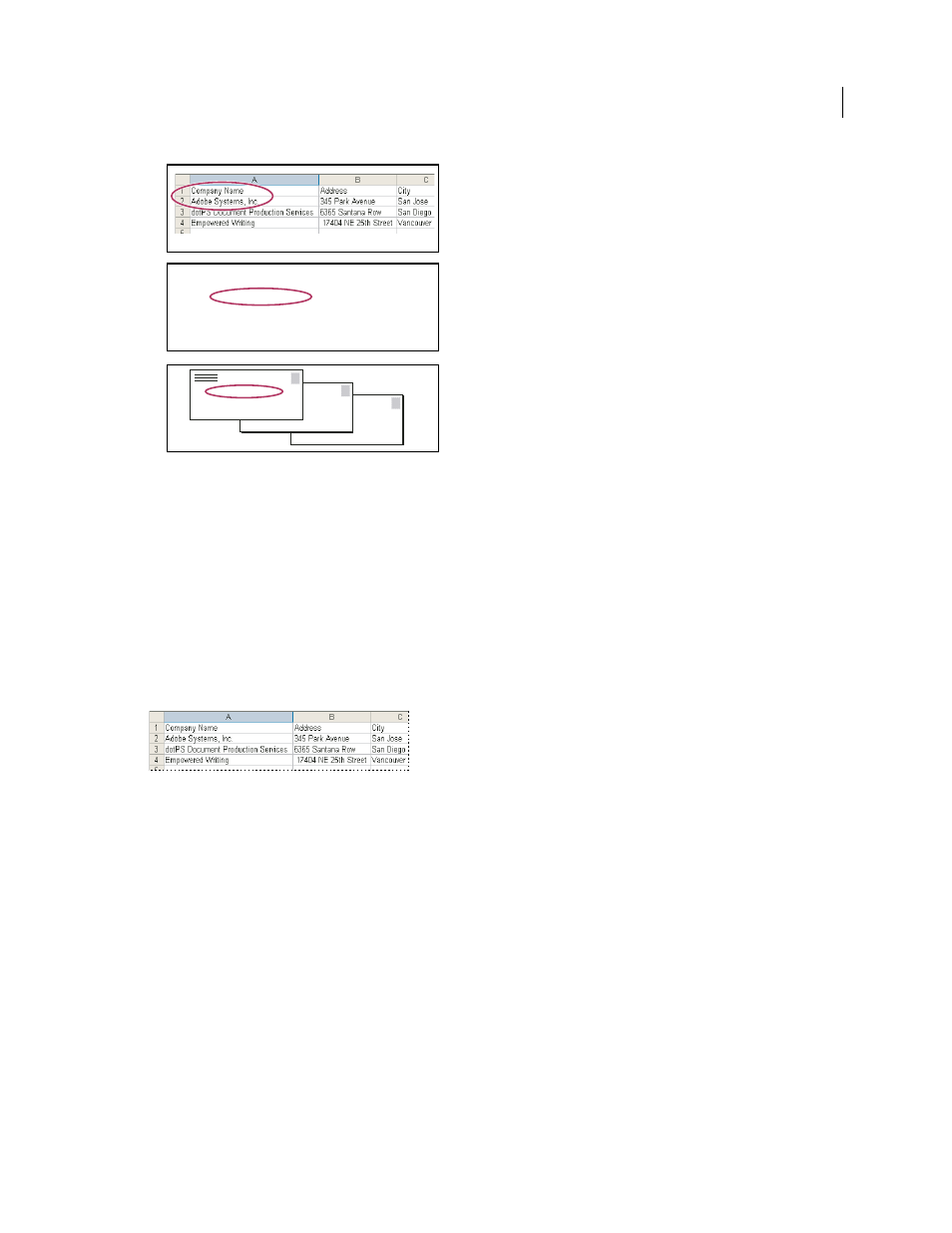Basic steps for merging data – Adobe InDesign CS5 User Manual
Page 658

652
USING INDESIGN
Automation
Last updated 11/16/2011
Data merge
A. Data source file B. Target document C. Merged document
Basic steps for merging data
1.
Make plans to determine which data fields you’ll be using in your source and target documents.
Determine how you want the final document to look, so that you know which fields are necessary to accomplish the
merge. For example, if you are creating a postcard that will be mailed to customers, you might want to use the following
data fields:
<
Your spreadsheet or database might look like this:
Sample data file
2.
Save the data source file—usually a spreadsheet or database file—as a comma-delimited (.csv) or tab-
delimited (.txt) text file.
Make sure that your data source file is structured in such a way that you can include the appropriate fields in your
target document. For example, the top row of a spreadsheet should contain the field names that you’ll use in the target
document, such as “Company” and “Address.”
3.
Create a target document that includes text and other items that remain the same in each version of the target
document.
4.
Select the data source using the Data Merge panel.
A
B
C
Empowered Writing
17404 NE 25th Street
Vancouver, WA 98684
dotPS Document Production Services
6365 Santana Row
San Diego, CA 92110
Adobe Systems, Inc.
345 Park Avenue
San Jose, CA 95110
<
<>
<
